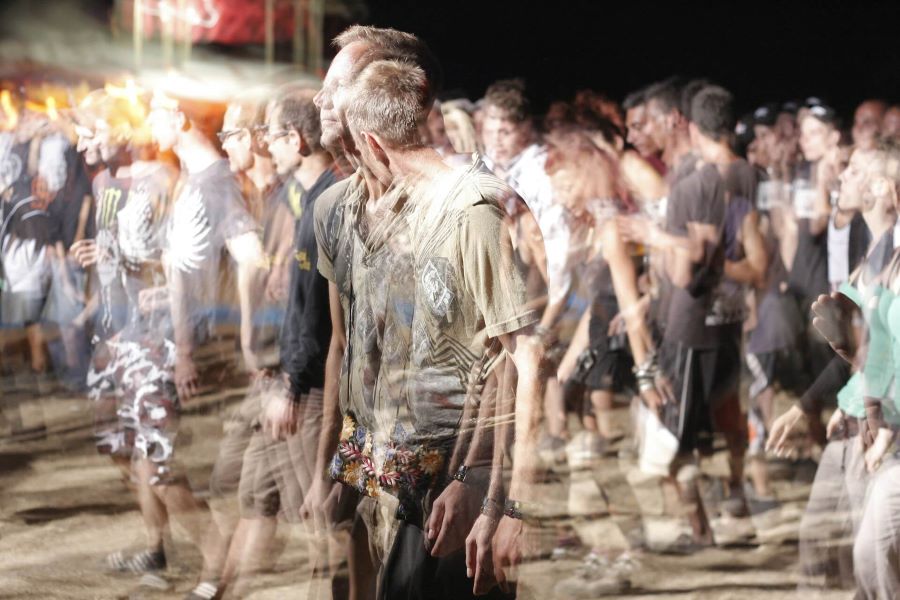
Table of Contents
Drug dependence claims millions of lives every year. It is often visible that along with the person with an addiction, the near and dear are also affected by drug addiction. Families, friend circles, communities, etc., all get negatively impacted by a person’s drug abuse.
People must understand more about the social impacts of drug use. Substance use can spoil an entire society. It is high time to treat drug use and addiction as much more than a personal problem. It is indeed a social problem, and it is necessary to find the right solutions.
Irrespective of the type of drug, the risk of the drug is indeed the same. People who use drugs stand the chance of developing an addiction and becoming a social menace. So, the sections below attempt to draw a clear picture of substance abuse and discuss how substance use disorder destroys families and communities.
Understanding Drug Use and Addiction: Social Impacts of Drug Addiction
Alcohol and drug addiction are things that are generally looked down upon. Civilized societies have identified the harmful effects of drug addiction and tried to remove them from society.
A person addicted to drugs often causes great harm to themselves and the society around them. However, the social impacts of alcohol or other drug addiction are very rarely discussed. People usually center the discussions around the personal health impacts an addictive drug can cause.
But as per the science of addiction and its experts. Drug misuse and addiction cause significant harm to the society in which the person with an addiction is living. From the family of the person with an addiction to the community that they live in, addiction may affect every single unit of society around.
It is high time to include the social aspects of drug seeking within the treatment for drug addiction. Along with reclaiming the physical health of a person with an addiction, there should be conscious efforts to repair whatever social damage that the person with an addiction has done over time.
The following sections attempt to shed light on the effects of drug addiction on society. They also discuss the necessity to prevent any development of drug addiction to prevent any harm to the entire society.
Drug Addiction: The Basics of the Drug Problem
Drugs are capable of altering the minds and bodies of drug users. Repeated drug use leads to permanent changes in the consumer’s brain, causing significant health impacts on them. Many items come under the umbrella term of drugs. Some of them are as follows.
- Prescription drugs
- Over-the-counter drugs
- Tobacco
- Alcohol
- Illegal drugs
All the categories mentioned above can lead to addiction on significant levels. When you use a drug for a long period, it can alter the brain chemistry and lead to major behavioral problems.
From simple behavioral issues like social awkwardness to significant problems like drug overdose and mental disorders, there are no limits to the harm caused by drug abuse and addiction.
Severe Substance Use Disorder: Signs and Symptoms
Drug-seeking and use can be identified in people through various signs and symptoms. Initial drug use may not exhibit many symptoms. But as alcohol and illicit drug use go overboard, friends and family can spot the signs quickly.
Some of the most common symptoms of drug dependence and addiction are as follows.
- Prefers to be alone
- Losing interest in day-to-day activities
- Avoiding personal hygiene
- Extreme tiredness
- Severe mood swings
- Unusual eating pattern
- Strange sleeping habits
- Missing personal and professional commitments
- Issues in personal and professional circles

Drug Abuse: Social Impacts
Although the health issues caused by addiction to opioids and other substances are commonly discussed, repeated use of a drug can cause significant social trauma. National Survey on Drug Use points out that compulsive drug use can affect the user’s family and friends.
The survey also makes a significant point that addiction affects children in the addict’s social circle severely. Addiction usually causes different levels of burden on the addict’s friends and family.
When a person with an addiction takes drug treatment and gets out of the adverse effects of drugs, the people around them are forced to carry the trauma caused by the previous drug use. This is why it is essential to address the social impacts associated with drug use and prevent drug taking in its initial stages.
The issues faced by the dear and near of the people struggling with addiction are as follows.
Economic Impact
Alcohol or drug use can cause a significant economic burden on the friends and family of the person with an addiction. They will have to provide financial support for the person with an addiction until he or she completely recovers from drug addiction and gets back on their feet.
Every treatment, including addiction treatment, can cost a reasonable sum. Most times, the addict might not be in a financial position to fund the treatment of substance use. So, the friends and family are forced to provide funds for the drug addiction treatment.
The family will also have to provide enough money for follow-up visits and doctor appointments to prevent the patient from returning to drug use. Until and unless the patient proves far from the addiction risk, the family and friends have to carry all the economic burden associated with them.
Emotional Impact
Mental health and addiction is a common topic of discussion. However, people often focus on the mental health of the addict. However, the mental health of the addict and near also faces challenges throughout the addiction journey.
The family members of an addict often have to face various embarrassing situations that cause them major mental distress. They also feel many other negative emotions, as follows.
- Fear
- Anxiety
- Frustration
- Anger
- Shame
- Depression
- Guilt
- Worry, etc.
From these negative emotions caused by the people around an addict, it is clear that drug addiction is a chronic social evil. It is only through recognizing the early signs of addiction and drug use patterns that the family can prevent any further development of addiction.
Impacts in Children
Children are unfortunately in a position where a greater risk of drug addiction can be felt. Even though they are not taking part in the drug craving or using process, they fall victim to addiction in various ways.
The impact of drug and alcohol addiction on children in the fetal stage is unimaginable. Consuming alcohol or any other recreational drug can cause major developmental issues in the fetus.
The development stages of a child can get delayed if the mother has cocaine use or other drug use issues.
Children of people using the drug often get subjected to severe negligence. One of the major signs of drug addiction is ignorance towards personal responsibilities, which can include children.
People who take the drug regularly may find it hard to take care of their children. Also, the addicts may exhibit violent withdrawal symptoms when in a treatment program to seek help for drug addiction. These withdrawal symptoms can cause physical and emotional trauma to the children close to the addict.
Final Word: Addiction Treatment | First Step to Overcoming Drug Abuse
As per the National Institute on Drug Abuse, the effects of addiction include physical, emotional, social, and mental aspects. It is important to seek professional help to reduce drug addiction effectively. Taking proper substance abuse treatment and addiction medicine can help speed up addiction recovery. Treatment for drug addiction includes many options, including residential treatment.
FAQs
Drug abuse and addiction is considered a mental disorder. Larger doses of the drug can permanently change the brain functioning. This can cause severe mental issues that are irreversible.
To help a person addicted to drugs, it is ideal to get them into a recovery program. Addiction recovery programs are based on the science of addiction psychiatry. So, they are highly helpful in saving the addict from the risk of drug use.
Addiction recovery can be fast, depending on the condition of the patient. If the addiction to drugs is taken to greater levels, the recovery might be a bit slow. But if the person is on an initial level where they use drugs just to feel pleasure, the recovery can be fast.










